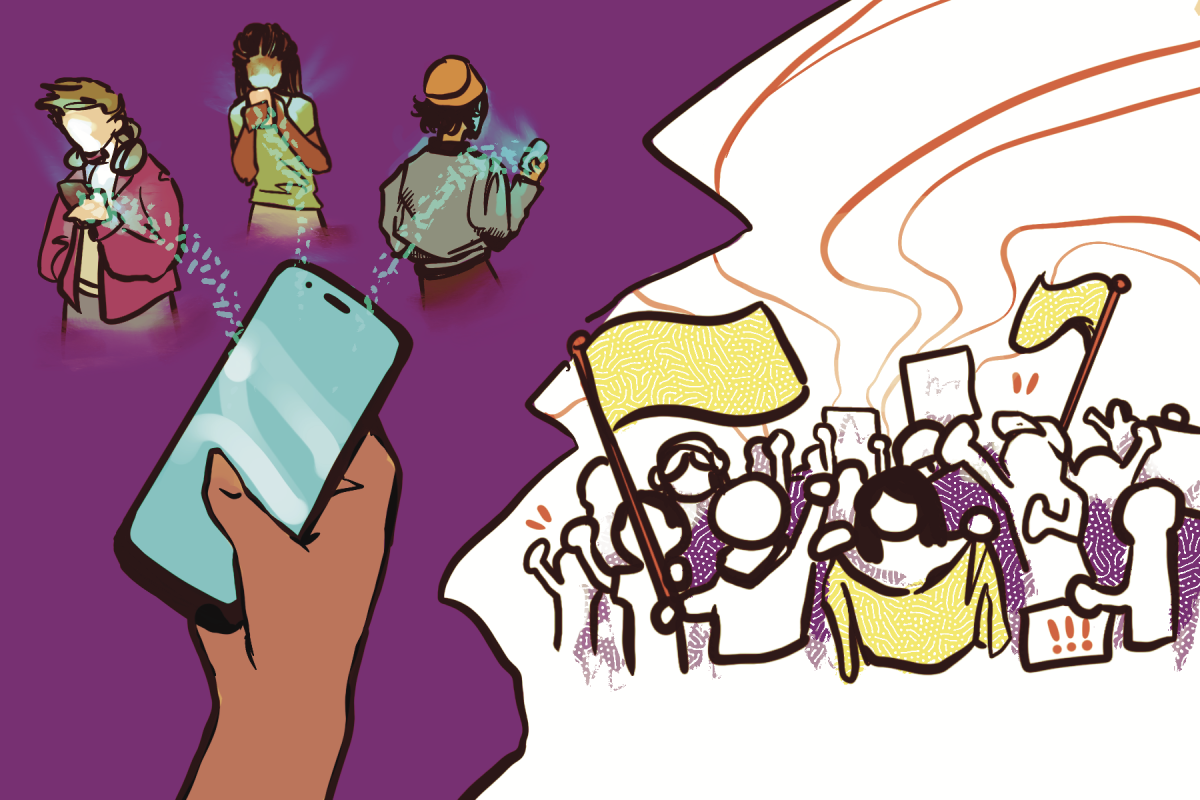For years, Generation Z has touted itself as unprecedentedly socially conscious and politically outspoken, with many young people having mastered the language of social justice and flooding their Instagram pages with progressive posts. However, in spite of our generation’s seeming attentiveness when it comes to socioeconomic disparities, Gen Z has fallen short of sustaining collective action in ways that incite substantial change.
Performative activism is defined as “activism that is done to increase one’s social capital rather than because of one’s devotion to a cause.” This phenomenon has been apparent through Gen Z’s perpetual use of social media posts to raise awareness about social issues as opposed to participating in forms of political action. In 2020, when Black Lives Matter protests erupted nationwide in response to the murder of George Floyd, online activism soared. Many took to Instagram, posting black squares and adding #BlackLivesMatter to their stories and bios — supposedly in an effort to demonstrate solidarity with Black communities. Corporations like Apple and Netflix changed their profile photos on social media in solidarity.
More recently, an artificial intelligence-generated “All Eyes on Rafah” image was created and shared by more than 50 million users on Instagram. For many, this was the first time that they openly demonstrated their support and awareness of Israel’s ruthless bombing campaign on Gaza’s Rafah crossing. By posting an AI image rather than any of the real, easily accessible photos journalists in Gaza were risking their lives to take — similar to the trend of posting black squares — online users neglected the opportunity to thoughtfully depict the real-world effects of Palestinian death and police brutality.
Digital activism has the capacity to effectively spread awareness of collective solidarity — however, it has caused Gen Z to become too comfortable behind the screen. Moreover, it has caused this generation to become lazy in their political and physical demonstrations of solidarity. Social media has shortened our attention spans, training us to rely on instant gratification and move onto the next topic with the swipe of a finger, making it harder to stay engaged with long-term struggles. We may post about one conflict with momentary outrage when it’s trending, but once we exhaust what we treat merely as online trends, it’s easy to move on. Even if our activism is loud, it is fleeting.
From posting Instagram stories with news updates regarding the Rapid Support Forces’ attacks on Sudan to sharing AI-generated images and black squares, Gen Z has made a habit of substituting social media use for direct action and perpetuating the idea that people have done their part by simply being aware. Many post to absolve the guilt they feel for inaction, and feel better after exerting the minimal effort it takes to share an infographic or reel. We then continue to scroll onto something else and forget about it. That instant gratification leaves us with no motivation to push ourselves to do more.
There is a serious danger in that illusion. Activism has become a performance measured by how quickly we repost, rather than the concrete steps we can take.
Real activism is inconvenient. It requires calling elected officials, organizing local demonstrations and showing up to them rain or shine. It’s far less glamorous and visible than posting on your Instagram story, but it is essential. With palpable, collective support at the political and communal level, effective action can be taken beyond useless clicks and shares.
There is a way for social media advocacy to be more productive in spreading awareness and supporting international causes. By sharing and signing petitions, using social media to spread the word about on-the-ground actions and protests and sharing accurate, relevant information, social media can be a useful tool that accompanies direct action — but not the sole vehicle by which awareness is spread.
Gen Z has the right political instincts and values. We care, we are compassionate and we are informed. But social media has taken hold of our true ability to enact change. By logging off and signing up for direct action, we can truly bring about a positive impact.
WSN’s Opinion section strives to publish ideas worth discussing. The views presented in the Opinion section are solely the views of the writer.
Contact Leila Olukoga at [email protected].
























































































































































